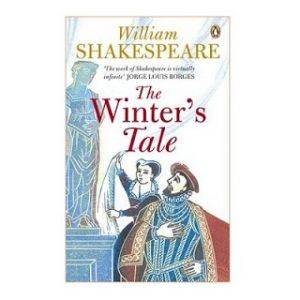The Winter’s Tale is coming, and what a harsh winter we’ve had. Although this play has nothing to do with the terrible Midwestern weather, it does have a pretty interesting plot. Considered one of Shakespeare’s “problem plays,” the first half is filled with tragedy and drama while the second half turns into a happy ending. Thanks to our high school teachers (and Gwyneth Paltrow), we’re all somewhat familiar with Shakespearea’s plays, but there’s a very good chance that most of us know very little about this particular production. Having the opportunity to cover such an interesting show, I was able to chat with its director, What You Will’s Mark Pajor. He talks about their twist to this tale of jealousy.
———
 Smile Politely: How was The What You Will Shakespeare Company founded?
Smile Politely: How was The What You Will Shakespeare Company founded?
Mark Pajor: About eight years ago, some members of the New Revels Players (another student theatre group on campus) decided that they wanted to perform more Shakespeare. So, they founded their own company and opened their inaugural show, a production of Macbeth, in April of 2006. We aim to provide our audience with an engaging and accessible connection to Shakespeare’s plays, and to present those plays in original ways.
SP: For us non-Shakespearean fanatics, where did the name originate from?
Pajor: Our name comes from the play Twelfth Night. Like many early modern plays, Twelfth Night has an alternate title: What You Will. The phrase is also said in several of Shakespeare’s plays. The full name of the company is “The What You Will Shakespeare Company,” but we often call ourselves What You Will for short.
SP: How often does the company perform?
Pajor: On average, we perform about three plays each semester, in the fall and spring.
 SP: Do you only perform Shakespeare?
SP: Do you only perform Shakespeare?
Pajor: The majority of the plays we perform were written by Shakespeare, but we like to shake it up from time to time, to add some variety to the company. For example, our full-length shows this semester are The Winter’s Tale and The Revenger’s Tragedy. The Winter’s Tale is by Shakespeare, and Revenger’s is by another early modern playwright, Thomas Middleton. We mostly perform plays written before 1800 (such as Oedipus Rex from the classics or The Country Wife from the Restoration period), but we occasionally perform modern shows that have some significant relation to Shakespeare or early modern England. Last year we performed Cyrano de Bergerac, which was written in 1897 but takes place in the seventeenth century. Essentially, while Shakespeare’s shows get most of our focus, we are certainly interested in other works, too.
SP: What are you most excited about with The Winter’s Tale production coming up?
Pajor: I’m excited to see the audience’s reaction to our take on The Winter’s Tale. It has an infamous reputation as one of Shakespeare’s “Problem Plays,” since the first half of the show presents an intense and dramatic tragedy, and then the second half tells a whimsical story of forgiveness. We’re addressing this dissonance by presenting the play as a tragedy, where the show’s inexplicably happy ending is a fantasy in the mind of the main character. I’m looking forward to showing our audience The Winter’s Tale in a unique light.
********
We all have to wait what Mark Pajor means with his teaser of a new twist. Luckily, the show isn’t too far away. It runs on March 14 and 15, just in time for the Ides of March. For more details, check out The What You Will Shakespeare Company’s blog. Keep up with them on Facebook for more updates!








